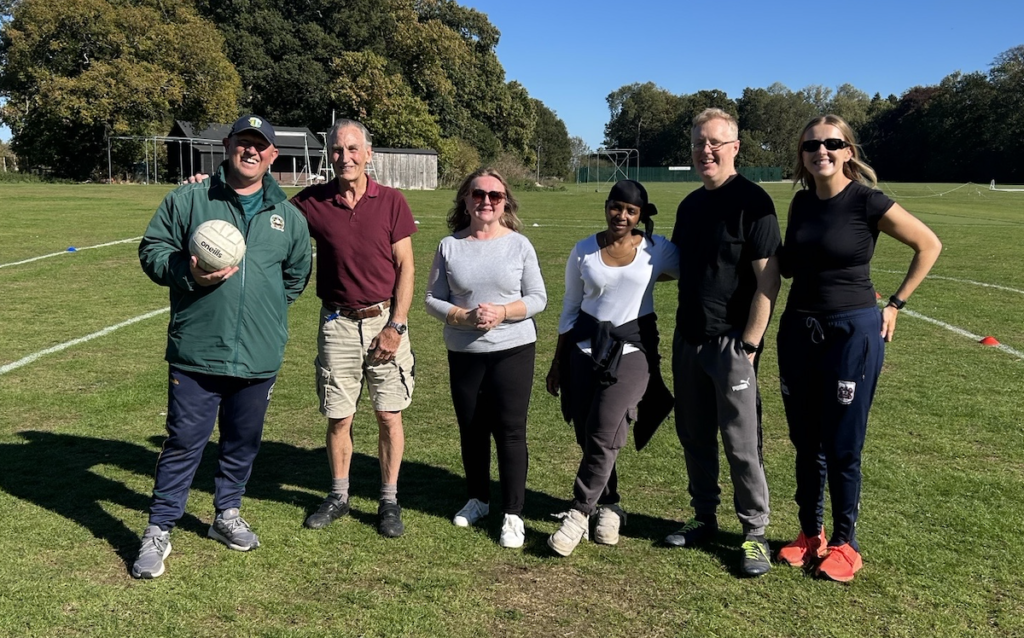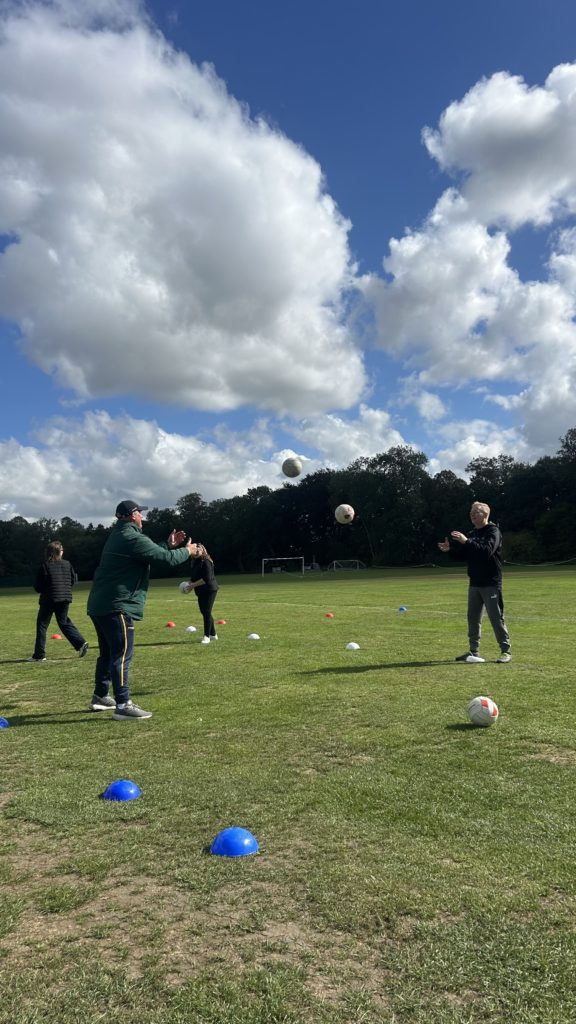WALKING Gaelic football sessions have been held in Britain for the first time.
Facilitated by the Irish in Britain (IIB) organisation under their Healthy Ageing Project, the initiative was run in partnership with Britain GAA and Hertfordshire GAA.
The three-week pilot welcomed men and women to learn the basics of the game as well as developing the key Gaelic football skills.
“Revisiting a sport from your youth can be a joyful experience, it stirs memories and a sense of vitality, even if the body sometimes forgets it can’t quite run like it used to,” an IIB spokesperson said.
 The walking Gaelic football pilot took place over three weeks
The walking Gaelic football pilot took place over three weeksNine people took part in the pilot. The eldest was 82-year-old Tim, who said “the hardest part of this is the walking”.
Fellow participant, Helen, said she looked forward to the sessions.
“Otherwise, I’d have just been at home, doing nothing,” she added.
 Hertfordshire GAA coach Kevin Jackman led the sessions
Hertfordshire GAA coach Kevin Jackman led the sessionsThe IIB explained that “the beauty of walking Gaelic football lies in its inclusivity”.
“If you’ve learnt it before or it’s new to you, everyone moves at a walking pace, ensuring it’s both fun and safe for all,” they added.
“That one hour each week spent laughing, moving and enjoying the fresh air proved to be a wonderful way to stay active, social and connected.”![]()
![]()
![]() Each 45-minute session was run by coach Keith Jackman from Hertfordshire GAA.
Each 45-minute session was run by coach Keith Jackman from Hertfordshire GAA.
“The feedback was overwhelmingly positive, with everyone expressing a desire to continue the sessions,” the IIB has confirmed.
Talks are now underway to extend the initiative further.
“The success of the pilot has sparked discussions about bringing Walking Gaelic Football back as a regular feature in the spring within Hertfordshire,” the IIB confirmed.
“There has also been strong interest from Lancashire GAA to launch their own sessions, and we have found strong enthusiasm from members to introduce the activity in North London, something we also hope to see come to life in the spring.”

